30th EASD Scientists Training Course
Organised by the EASD, the 30th EASD Scientific Training Course was held in Leicester, United Kingdom, from 27th to 31st October 2024. This event provided an excellent opportunity for young researchers in the field of diabetology to connect with leading global experts and authors of key European and international guidelines and research on diabetes and obesity.
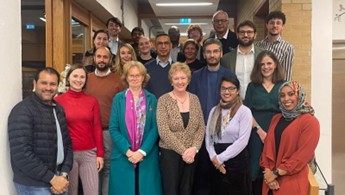 A group of 15 young researchers were invited to the event and had the opportunity to work closely with an excellent faculty. During the course, which covered all critical and current topics in diabetology and obesity, we gained new skills in designing clinical trials, developing critical thinking, and generating innovative ideas for future research. In addition to the rich scientific programme, we as young researchers from many backgrounds and nationalities, had an ideal opportunity to socially interact with the experts and each other.
A group of 15 young researchers were invited to the event and had the opportunity to work closely with an excellent faculty. During the course, which covered all critical and current topics in diabetology and obesity, we gained new skills in designing clinical trials, developing critical thinking, and generating innovative ideas for future research. In addition to the rich scientific programme, we as young researchers from many backgrounds and nationalities, had an ideal opportunity to socially interact with the experts and each other.

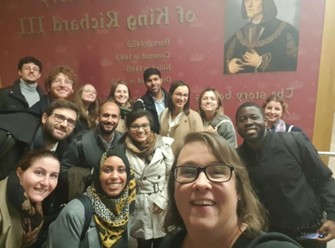
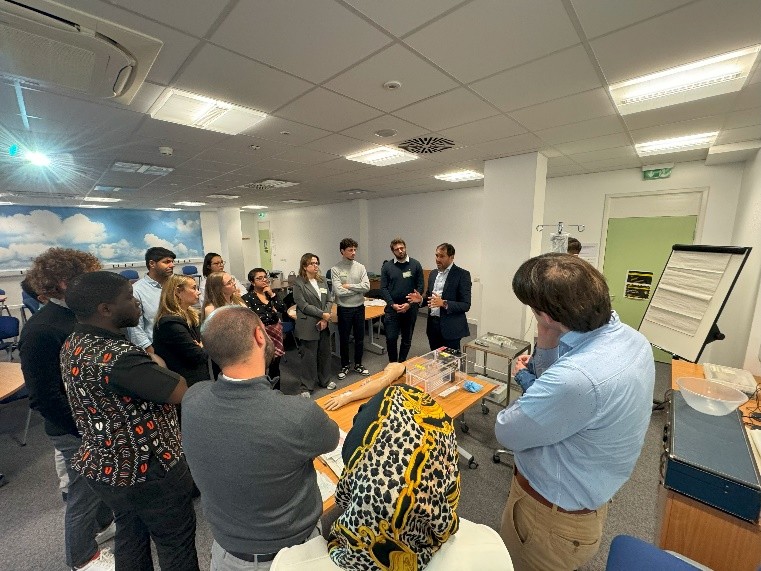 A session on diabetes technology followed, focusing on CGM data, the role of carb counting, and mental health in managing glucose curves. Practical tools, such as the “CHIEF” framework, were introduced to simplify glycaemic control for patients: Check glucose levels, assess insulin needs before eating and Inject, Eat within 15-20 minutes and enjoy the meal, and Forget, i.e. no need to think about the diabetes until the next mealtime.
A session on diabetes technology followed, focusing on CGM data, the role of carb counting, and mental health in managing glucose curves. Practical tools, such as the “CHIEF” framework, were introduced to simplify glycaemic control for patients: Check glucose levels, assess insulin needs before eating and Inject, Eat within 15-20 minutes and enjoy the meal, and Forget, i.e. no need to think about the diabetes until the next mealtime.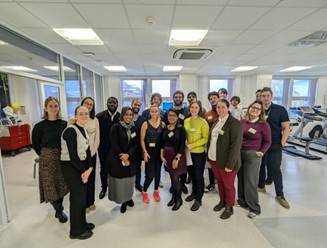
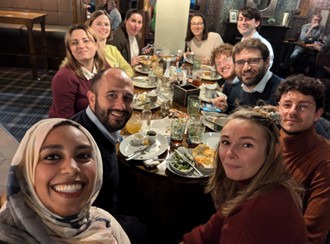 In the afternoon, we visited Glenfield Hospital for a fascinating session on muscle physiology, sarcopenia, and imaging. We donned our lab coats to prepare muscle tissue slides and followed their journey through advanced imaging techniques and data interpretation. The session highlighted the clinical and diagnostic challenges posed by sarcopenia and its dangers. The day wrapped up with two inspiring poster presentations from the centre’s talented PhD candidates.
In the afternoon, we visited Glenfield Hospital for a fascinating session on muscle physiology, sarcopenia, and imaging. We donned our lab coats to prepare muscle tissue slides and followed their journey through advanced imaging techniques and data interpretation. The session highlighted the clinical and diagnostic challenges posed by sarcopenia and its dangers. The day wrapped up with two inspiring poster presentations from the centre’s talented PhD candidates.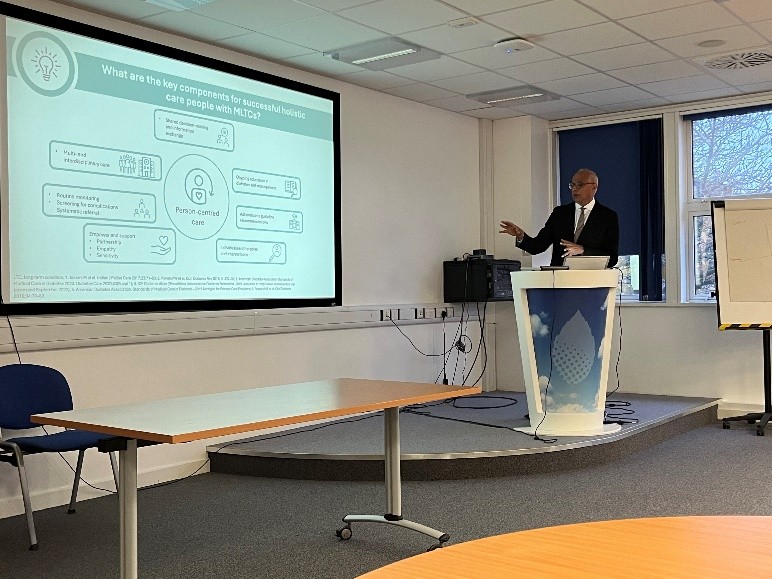
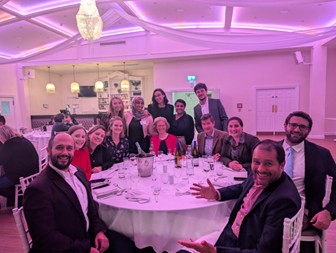 A session on managing multiple long-term conditions emphasised the need for a patient-centred approach and highlighted the importance of diversity in clinical trials. This reinforced the future of diabetes care as multifactorial, inclusive, and personalised. Strategies for improving inclusivity - such as community engagement, overcoming language barriers, and partnering with local leaders - left us feeling inspired and empowered as part of the diabetes research community.
A session on managing multiple long-term conditions emphasised the need for a patient-centred approach and highlighted the importance of diversity in clinical trials. This reinforced the future of diabetes care as multifactorial, inclusive, and personalised. Strategies for improving inclusivity - such as community engagement, overcoming language barriers, and partnering with local leaders - left us feeling inspired and empowered as part of the diabetes research community.